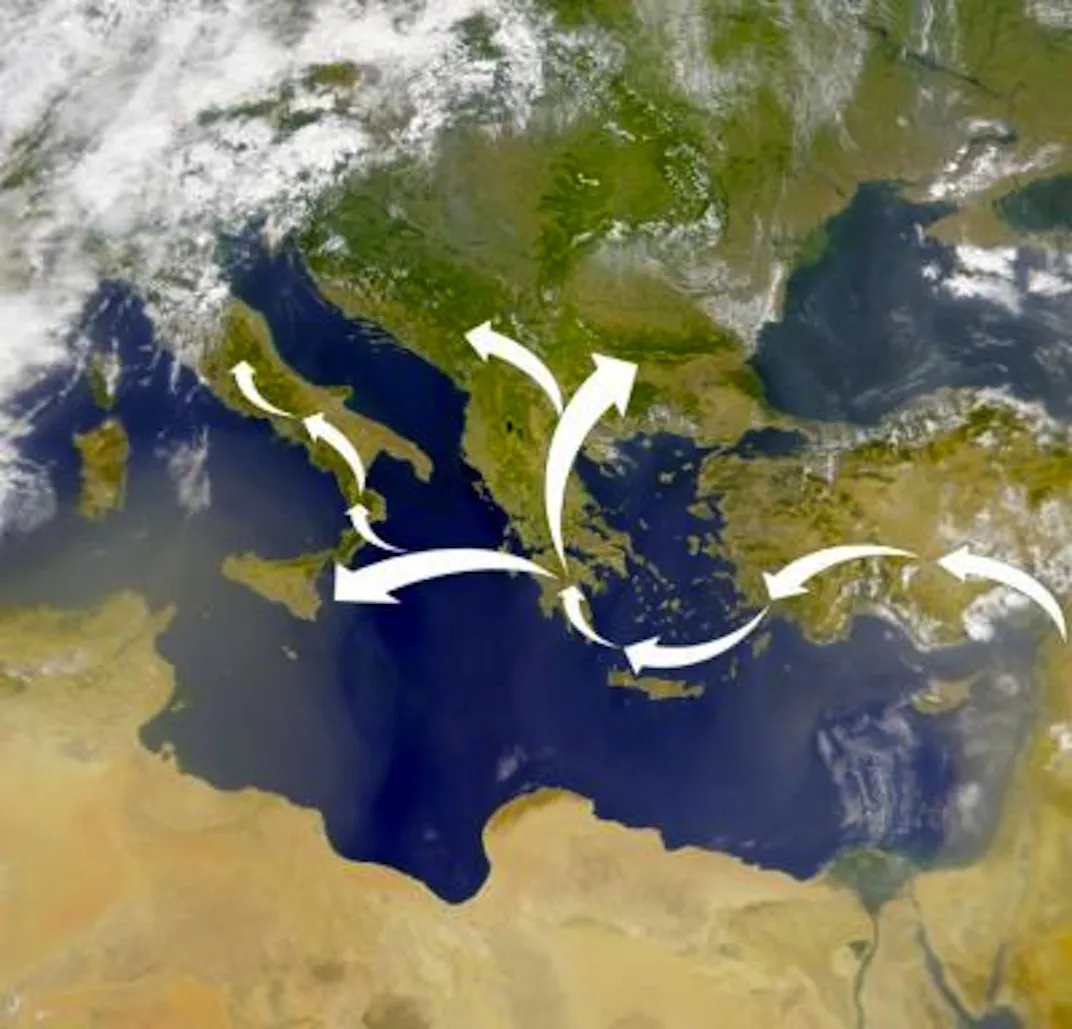Europe Was Probably Colonized By Island Hoppers
New genetic research shows that people and agriculture likely spread across the Mediterranean by going from island to island
/https://tf-cmsv2-smithsonianmag-media.s3.amazonaws.com/filer/05/d5/05d518e7-6220-4b37-8a61-eb95ca692fa4/42-56249849.jpg)
Soon after neolithic peoples in the Middle East developed agriculture about 10,000 years ago, this new way of obtaining food spread to Europe. But how? Newly minted farmers could have taken a land route through Croatia...or crossed over the Bosphorus Strait...or sailed from Israel to Greece.
There are lots of stories that can be told about this journey. But now new genetics research, published in the Proceedings of the National Academy of Sciences, indicates that the communities with agricultural knowledge likely travelled from island to island across the Mediterranean.

The new study looked at genetic markers present in the people who live around the Mediterranean Sea today. The researchers looked at samples from thousands of people from Yemen to Spain.
From National Geographic:
By measuring which SNPs (geneticists call them "snips") populations have in common, it's possible to reconstruct how they're related. People living in central Turkey today, for example, share SNPs with Sicilians and Palestinians, but Sicilians and Palestinians have mutations that the two populations don't have in common. That suggests the people have common ancestral roots in Anatolia but the populations have not had much contact since.
The new data show that people living around the Mediterranean today have common ancestors in Anatolia. But then the genes diverge, with Greek islands like the Dodecanese archipelago and Crete forming a sort of genetic bridge to the rest of Greece, Sicily, Italy, and north into Europe. In the southern Mediterranean, the genetic signatures of modern-day Egyptians, Libyans, Tunisians, and Moroccans form a separate genetic branch.
Of course, ancient groups of people could have taken more than one route to explore and settle Europe. And archaeological evidence indicates that there was certainly trade across the Mediterranean, even if there wasn’t a lot of population mixing.